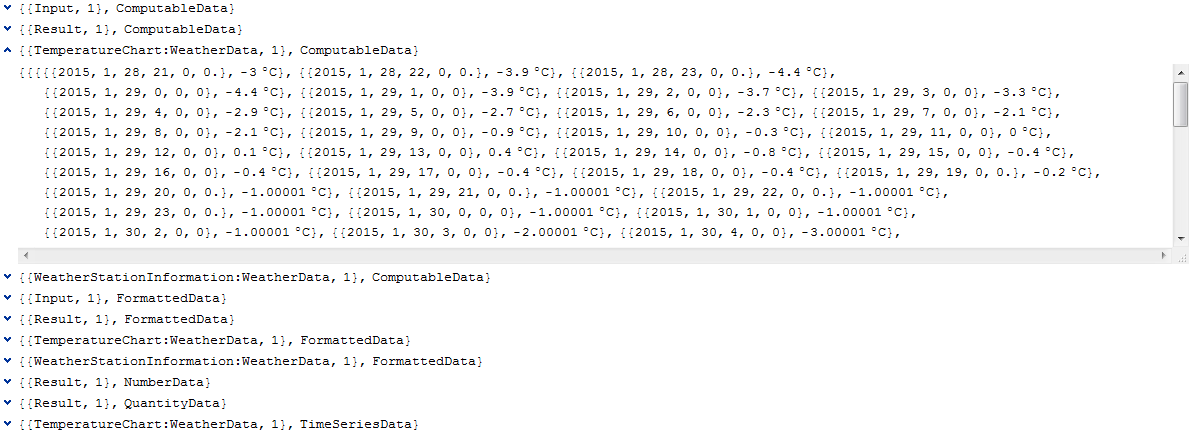When interacting with Mathematica, I often find myself staring blankly at waves of curly braces, trying to understand how data is organized hierarchically. For example, the beginning of the result to
WolframAlpha["temperature in Toronto yesterday", "DataRules"]
looks like this:

To visualize the hierarchy, I typically turn to TreeForm, but that's often unwieldy. There's no way to collapse parts of the tree you don't care about (as there would be in, say, a file system browser), so the visualization frequently spreads well off screen or is illegibly small. For example,
TreeForm[WolframAlpha["temperature in Toronto yesterday", "DataRules"]]
produces:

Is there a better way?


TableFormworks pretty well for that particular example. $\endgroup$TraceViewled me to theOpenerTreeexample in Virtual Book, which is a good start. $\endgroup$